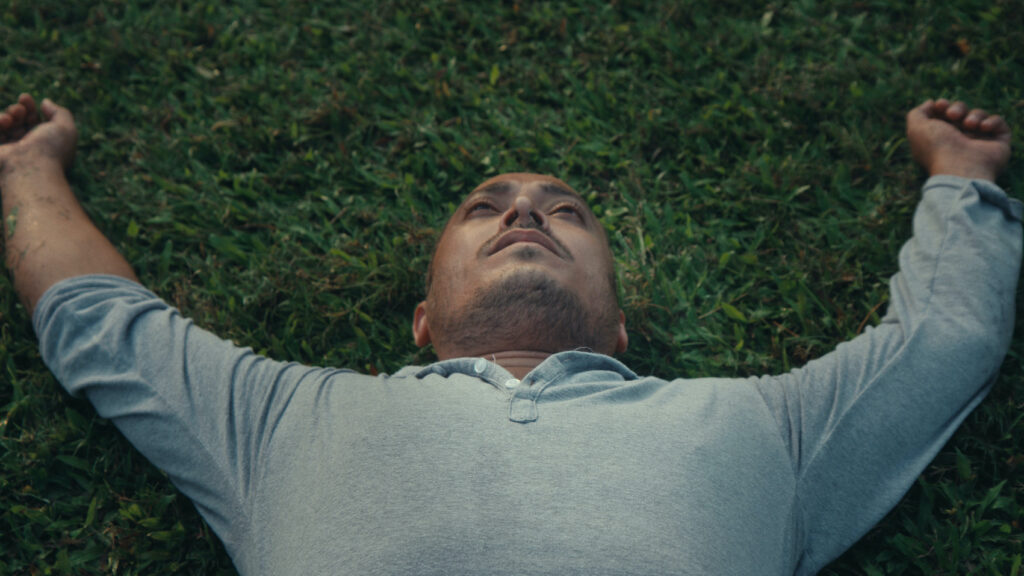Rima Das’ fourth outing, Tora’s Husband (2022), finally releases theatrically all over India after extensive screenings on the International film festival circuit. With the film, Das successfully delves into the very soul of her characters with a meticulous fly-on-the-wall approach that allows viewers to intimately experience the everyday life of her protagonist – Abhay Das or ‘Jaan’ (Abhijit Das, Das’ brother) – and his family. Tora’s Husband explores how Jaan copes with the aftermath of the horrific Covid-19 pandemic. As his world crumbles, he must confront his deepest fears and make some impossible choices in order to survive.
Tora’s Husband is set in the small town of Chhaygaon, a few kilometers from Guwahati in Assam. The film’s time period is around 2021–22, when the rigid restrictions due to Covid-19 have just begun to be relaxed. Jaan runs a bakery-cum-restaurant called ‘Snow White’, where the sales of the food items have not been very encouraging lately. He has also borrowed money from one of his friends to purchase materials for a construction site as a side business. But the contractor has not paid him for a long time, causing him severe financial strain. In order to escape from his harsh reality, he takes to alcohol with friends and becomes a habitual drinker, causing trouble in his family life. His wife, Tora (Tarali Kalita Das), doesn’t want a husband, who returns to the house late every night, reeking of alcohol as since her childhood, she has abhorred drunkards. Though dependent on alcohol, Jaan is a caring father to both his children, Bhargav (Bhuman Bhargav Das) and Manu (Purbanchali Das), and tries his best to provide them with all of life’s comforts. However, his efforts often go unappreciated by his wife, whose constant clashes with her mother-in-law have compelled the old woman to temporarily shift to her daughter’s home. The film depicts Jaan’s journey in dealing with his financial and emotional woes.
By keeping the tone of Tora’s Husband stark and observational, Das, who has written, photographed and edited the film, once again explores the deep complexities of human relationships and the impact of individual choices on one’s life with a nuanced and poetic approach. The film’s opening with Jaan dribbling a football in an empty field immediately sets its contemplative tone. Jaan may not be as agile as he was in his youth, but yet, he continues to labor on as he does in his practical life. Tora considers Jaan a good human but not a good husband. The constant strain between Jaan and Tora forms the tension in the story, which has been dramatized with much restraint and subtlety to give a realistic portrayal of intra-family dynamics. We empathize with and understand their compulsion to reconcile and find common ground. The film becomes a fine example of how post the pandemic, economic decline has a profound effect on interpersonal relationships, especially within families. The film is also interspersed with other characters, such as a drunk employee, a lunatic, and blind singers reciting devotional songs, thereby adding layering and a richness to the narrative.
On the flip side, Tora’s Husband does tend to flag in places as most of the scenes are designed to highlight the protagonist’s struggles. This sometimes comes at the cost of advancing the plot or developing other characters. When Jaan, who has so long bottled up his pent-up angst, breaks down at the end of the film, the moment fails to touch you as it should though we empathize with him right through the film. And while the slice-of-life approach gives beauty to ordinary moments, they do not always come together as cohesively as they should in spite of Das’ eye for the little details.
The cinéma vérité approach lets the characters shine through with their true-t0-life performances. The actors appear flesh-and-blood real and the scenes do not have a feeling of being staged for the camera. Veteran actress Moloya Goswami, the only professional actor in the cast, brings out the subdued pain and desolation of being separated from her loved one effectively with her gentle acting skills.
The film, aiming to mirror the rhythm of life, could have done with some trimming on the edit front. The sound design by Bigyna Dahal is enmeshed perfectly into the fabric of the film. He ensures that each sound element seamlessly not just complements the visuals, but also elevates the film’s storytelling potency.
All in all, Tora’s Husband, is a fine effort by Das, who continues to evolve as a filmmaker. However, for all its poetic highs, the film is let down by the absence of emotional resonance. And that stops it just short of ‘being there.’
Assamese, Drama, Color


